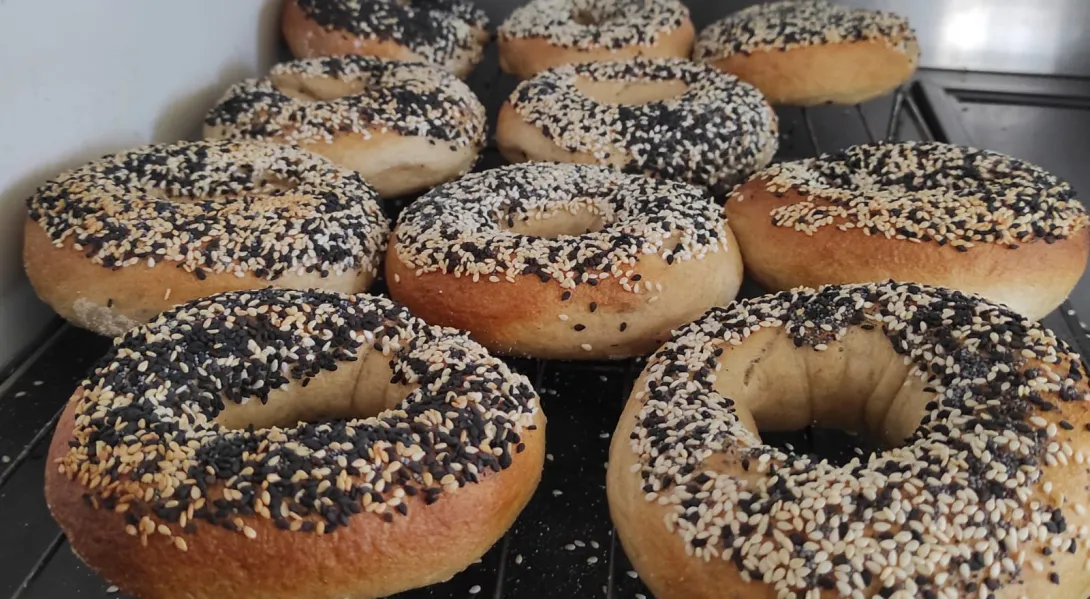
When I'm in the mood nothing beats a fresh chewy bagel and for me this can be one of the most satisfying breakfast or lunch breads. I know some people aren't so into bagels, but I just think that (maybe) they've never had a great boiled bagel that came out of the oven a few minutes ago.
So, I bake a lot of bagels and thought it might be good to write a bit about my preferred recipe here. First a disclaimer - it isn't really mine - it is mostly Jeffrey Hamelman's "Bagels with Pâte Fermentée" recipe!
Where I make it differently is that I think using a regular hydration (100%) unsalted sourdough starter plus a little wholemeal flour brings with it a lovely flavour and freshness, and that this makes for a great replacement for the pâte fermentée from the original recipe.
Dough then becomes:
690g bread flour
76g wholemeal flour
200g levain (100% hydration, made with bread flour, usually from overnight ferment)
397g water at around 30°C
18g salt
1 3/4 teaspoons instant yeast
1 1/4 teaspoons diastatic malt powder
Also, instead of sprinkling the baking sheet with semolina or cornmeal as Jeffrey does, what works well for me is a quick spritz of water and a sprinkling of brown rice flour which makes it easier to pick up the bagels for the boil. I've also figured out that I like bagels with a slightly shorter bake - so about 15 minutes at 230°C for the nice chew and softness.
This hybrid version, and Jeffrey's original pâte fermentée, are such lovely go-to recipes for bagels.
- JonJ's Blog
- Log in or register to post comments
These look fantastic. What are you using in the boil? Barley malt syrup?
Thanks. Yes, boil with barley malt syrup. In fact, any sugar, or syrup or honey all gave a nice caramelisation so I'm not picky, but barley malt seems to have the expected smell to it.
-Jon
These look great Jon. That is a great tip about using barley malt syrup instead of lye for boiling the bagels, it means one less thing to purchase!
Benny
My thinking is that the stuff that gets added to the boiling water serves different purposes biochemically.
The sugar/honey/barley syrup is purely for caramelization of the tops of the bagels, and the lye/bicarb serves a somewhat different purpose, yes it aids in caramelization, but it also encourages hydrolysis of protein, so will have a different effect on texture (like a tenderizer?) and makes them more like pretzels. I'm just describing it from the perspective of someone who is looking at the final product, but would love a biochemist to chime in with what is actually going on when lye is added to baked goods. And when you're boiling bagels, I'd assume the primary effect is a gelling of the starch on the exterior of the bagels so all of this may not be as relevant as the mere fact that bagels are boiled.
There are some recipes that would have both the alkali and sugar in the boiling water, so presumably that is to get both effects.